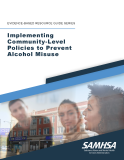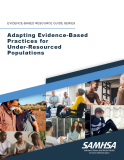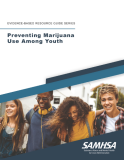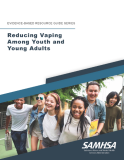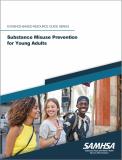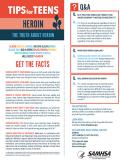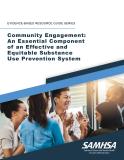
Community engagement is often cited as a tool to improve the health of the community and its members. This guide will review evidence related to leveraging community engagement to support the implementation and scale-up of evidence-based programs and policies.
Units per Product
Download
Community Engagement: An Essential Component of an Effective and Equitable Substance Use Prevention System
File Type: PDF
File Size: 11.72 MB
Guide Overview: Community Engagement: An Essential Component of an Effective and Equitable Substance Use Prevention System
File Type: PDF
File Size: 1.27 MB


